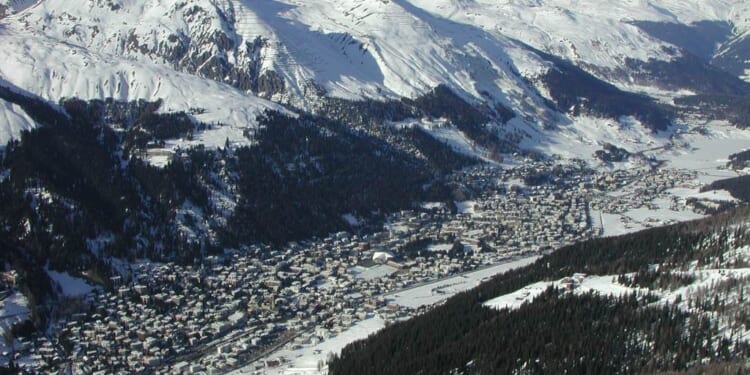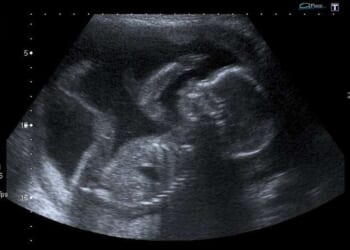“I can only imagine,” wrote Walter Benjamin to Gershom Scholem after reading The Magic Mountain, “what an internal change must have taken place in the author while he was writing.” That wonder drives Morten Høi Jensen’s The Master of Contradictions: Thomas Mann and the Making of “The Magic Mountain,” a lavish work of historical analysis that doubles as a kind of psychological thriller. Mann’s magnum opus is not just a novel, Jensen suggests, but a thinly veiled spiritual autobiography, a record of its author’s passage from Romantic fascination with illness and death to a hard-earned humanism. Its early pages were drafted before the First World War, then shelved and picked up again after the war’s devastation—by which time the world and Mann himself had changed beyond recognition. Jensen focuses on that twelve-year gestation, from 1912 to 1924. “The story of the writing of The Magic Mountain,” he proposes, “is a tale of two Thomas Manns.”
Can politics and aesthetics be pried apart? Can an infatuation with death be redirected towards the demands of a social and ethical life? The Magic Mountain, Jensen shows, was Mann’s attempt to confront these questions head-on. In a 1922 letter, Mann described his turn toward humanism as bound up with “the novel on which I have been working for all too long,” a Bildungsroman “in which a young man (before the war) is led by the experience of sickness and death to the idea of man and the state.” He first conceived the idea when his wife, Katia, was admitted with suspected tuberculosis to a sanatorium in Davos. The high-altitude sojourn inspired a story of an ordinary young man suspended between “bourgeois decorum and macabre adventure.”
That young man is Hans Castorp, an impressionable engineer who arrives at the Berghof Sanatorium for a three-week visit and stays seven years. High up in the Swiss Alps, the dominant posture is horizontal: patients recline, doze, and waste away in a fog of illness and idle philosophizing. The patients mostly “do nothing,” and “to do nothing at all, in the strictest, most literal sense possible, is to be dead,” Jensen notes. Hans, as it turns out, is already ill—not with tuberculosis but with a deeper spiritual malady: a “sympathy with death” that Mann once called the essence of all Romanticism.
On the mountain, illness is an existential condition, one that draws its convalescents out of linear time, out of civilization, and toward nonbeing. Clavdia Chauchat, a languid, narrow-eyed Russian, becomes the embodiment of counter-civilizational allure. Hans falls for her not through conversation—they barely share a language—but through her movements: she glides through doors, lets them slam behind her, and drapes herself lazily over chairs. She is described as infertile, and the desire she awakens is one without a future. Music exerts a similar narcotic pull on the mountain, as when Hans hears Schubert’s “Der Lindenbaum” as a siren call of death. The novel’s leitmotif-driven structure casts its own musical spell. Mann once claimed that only a second reading would reveal its full “musical association of ideas.”
The alpine air of Davos, as a sanatorium doctor notes, both cultivates disease and cures it. Jensen here draws a parallel to Mann’s intellectual coming-of-age. Just as Hans must dwell in death before choosing life, Mann had to yield to his own darker impulses—toward aesthetic detachment and moral evasiveness—before he could meet the demands of history. Two events frame this transformation: the start of the First World War and his writing of Reflections of a Nonpolitical Man (1918).
Jensen conjures the rapturous mood of German intellectuals at the outbreak of war. Mann was intoxicated, writing to his brother Heinrich, “Shouldn’t we be grateful for the totally unexpected chance to experience such mighty things? My chief feeling is a tremendous curiosity.” Heinrich, appalled by his brother’s war fever, sneered: “My brother enjoys [the war] like he does everything: aesthetically.” Work on The Magic Mountain stalled as Mann turned toward Reflections, a heady, paradoxically “non-political” defense of German exceptionalism: an ode to interiority, unreason, and music set against the flattening banalities of Western democracy. Its target of derision, the liberal cosmopolitan who sees art as a tool for social progress, is a stand-in for Heinrich. Jensen’s reading of Reflections is sharp, attuned to tensions just beneath its surface—how often Mann’s Nietzschean irony undercuts the positions he appears to stake out.
Mann seriously considered halting the book’s publication as the war dragged on. Despite its untimely defense of the collapsing Reich, Reflections drew praise in select circles: Hans Pfitzner sent Mann a fan letter and Elisabeth Förster-Nietzsche lent her approval. Mann came to regard the book as an embarrassing relic of his ideological adolescence. By 1945, the once-nonpolitical author could tell Hermann Hesse: “Nothing living can avoid the political today . . . the refusal is also politics.” Jensen calls the writing of Reflections “an intellectual exorcism,” a means for Mann to grapple with and finally to purge the mystique of political reaction.
While some of his erstwhile allies drifted toward völkish politics in the Weimar era, Mann began to view democracy as a calling Germany could no longer afford to ignore and found himself rallying behind the republic. In 1919, Mann took up the Magic Mountain manuscript once again. Naturally, in the context of fiction-writing, his emerging political sympathies remained somewhat opaque. But Jensen locates a clue in the “Snow” chapter, often seen as the book’s philosophical heart. Lost in a snowstorm, Hans experiences a near-death vision and momentarily rejects the ideologies of his mentors, Naphta and Settembrini. He arrives at a fragile insight: that “our interest in death and illness is nothing but a way of expressing an interest in life.” Soon after this revelation, the frozen world of the Berghof slowly begins to thaw, and fragments of history now intrude: fistfights break out, and a noxious anti-Semite arrives onsite. The duel between Naphta and Settembrini ends in death, exposing the futility of their competing worldviews. The thunderbolt of war finally strikes.
Hans descends from the mountain and steps into history, straight into the war’s inferno. He does so humming Schubert’s “Der Lindenbaum,” that quintessential refrain of German Romanticism. Jensen sees this moment as the culmination of The Magic Mountain’s dramatic tensions. Hans has “chosen the party of life,” he writes, and in the same instance “disappears into a war his country’s sympathy with death partly caused.” Hans chooses life at the very moment he is least able to live it. Jensen regards this as a final break with the romance of death, though it may also constitute one last seduction. The novel’s closing scene unfolds in a Götterdämmerung-like haze, the sky above flushing red with gunfire (recall Heinrich’s quip that Mann loved war “aesthetically”). Perhaps this finale both repudiates and flirts with its author’s exorcised temptations—a suggestion that, as Hans murmurs into falling snow, “man is the master of contradictions.”
















